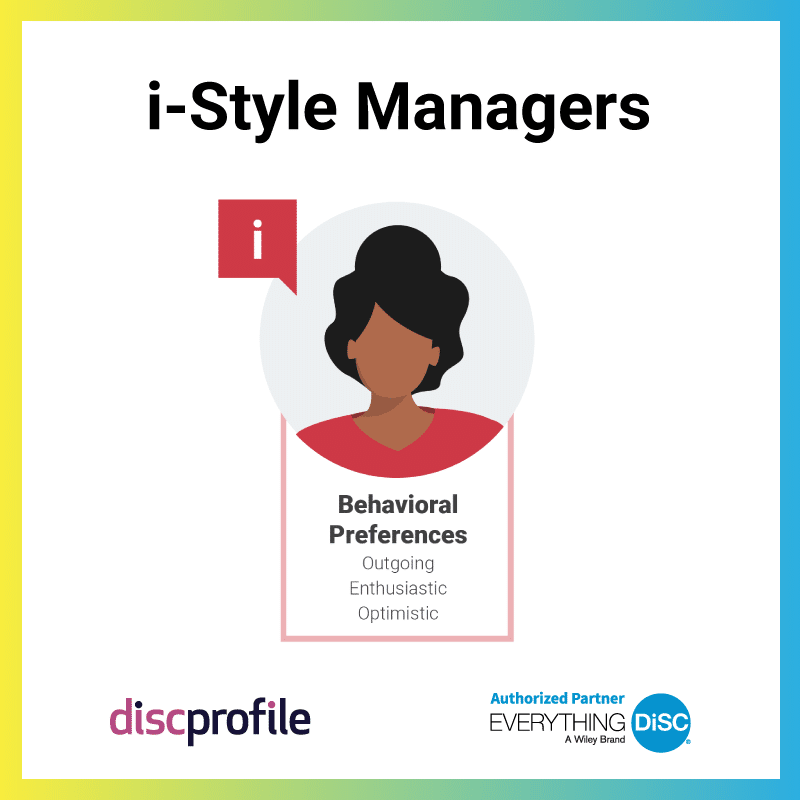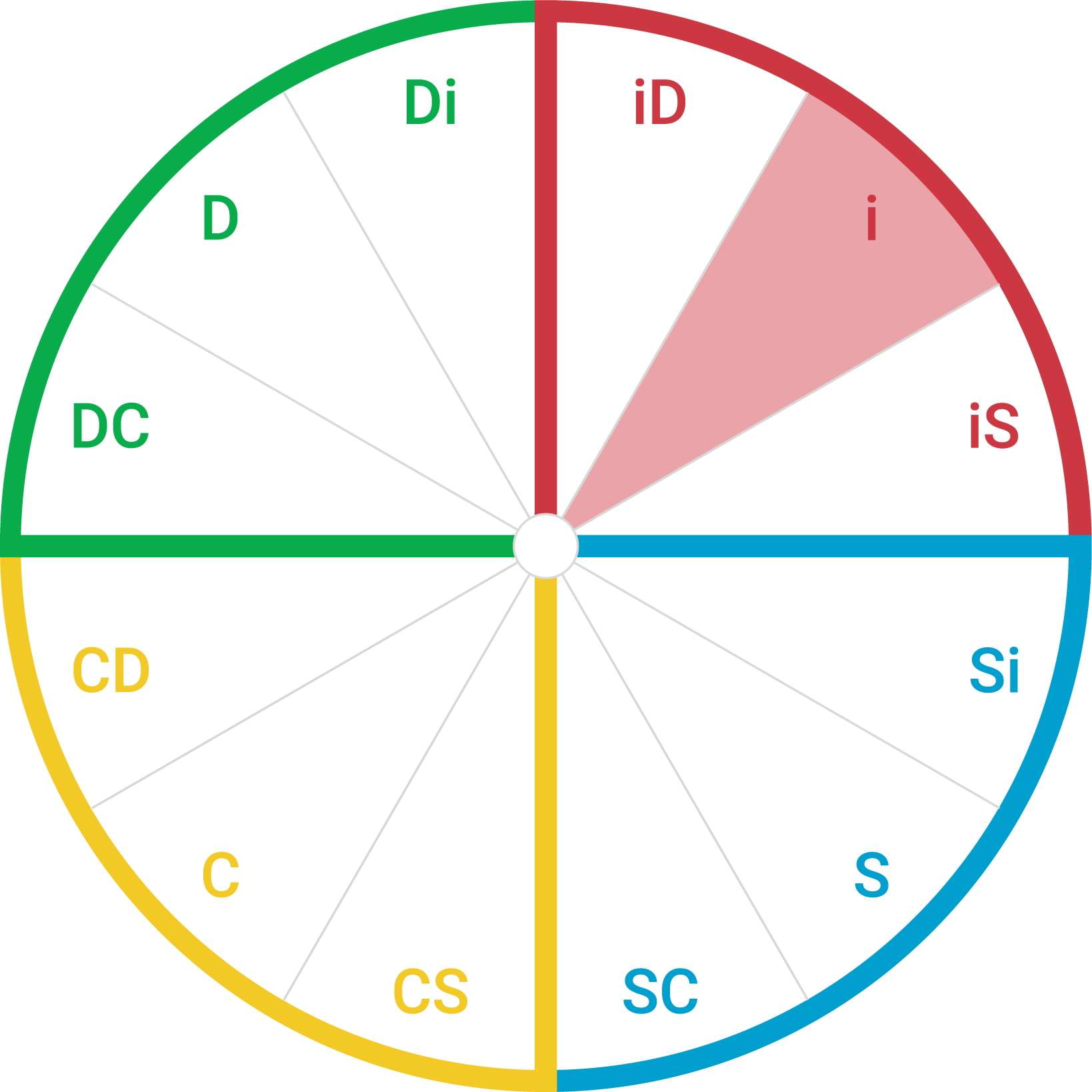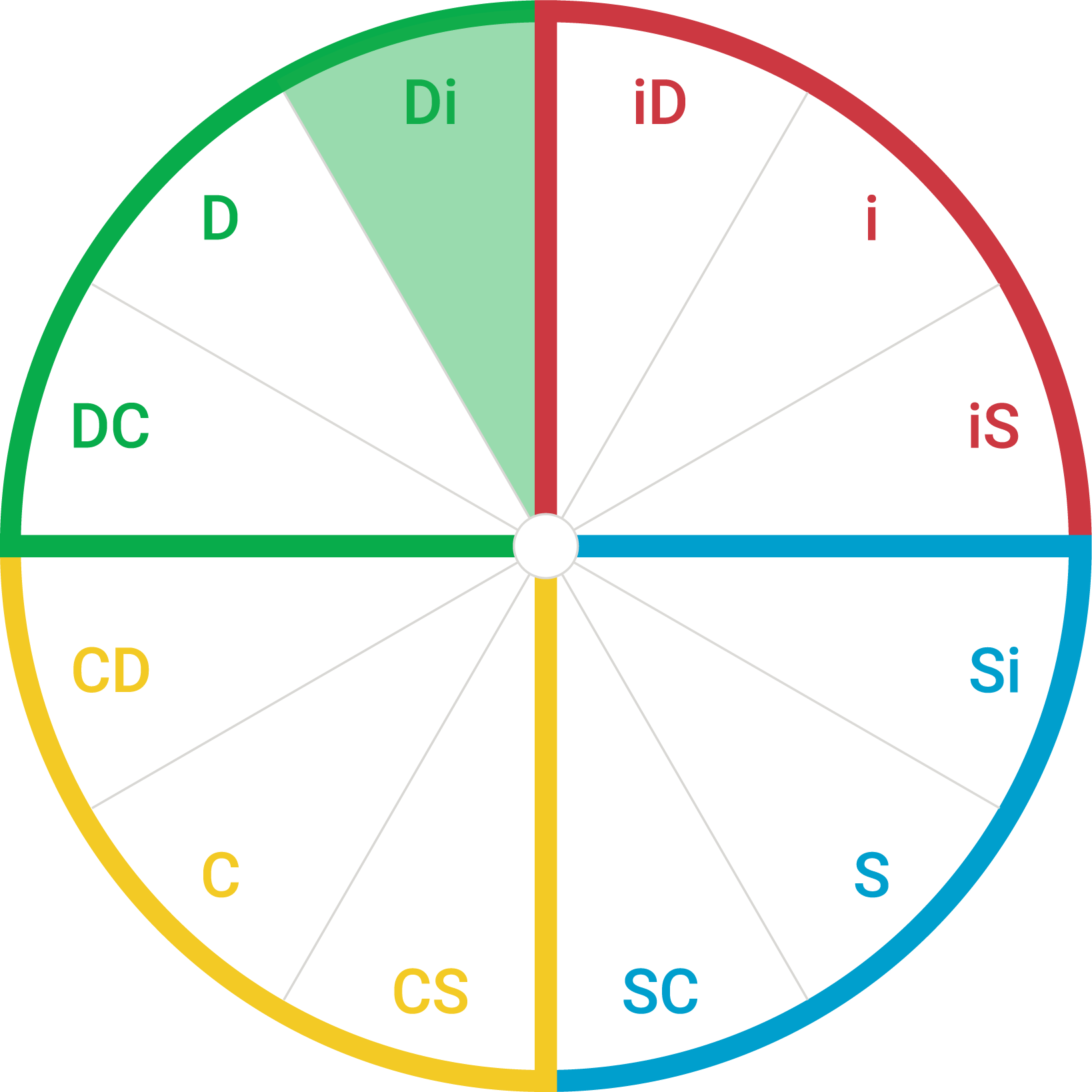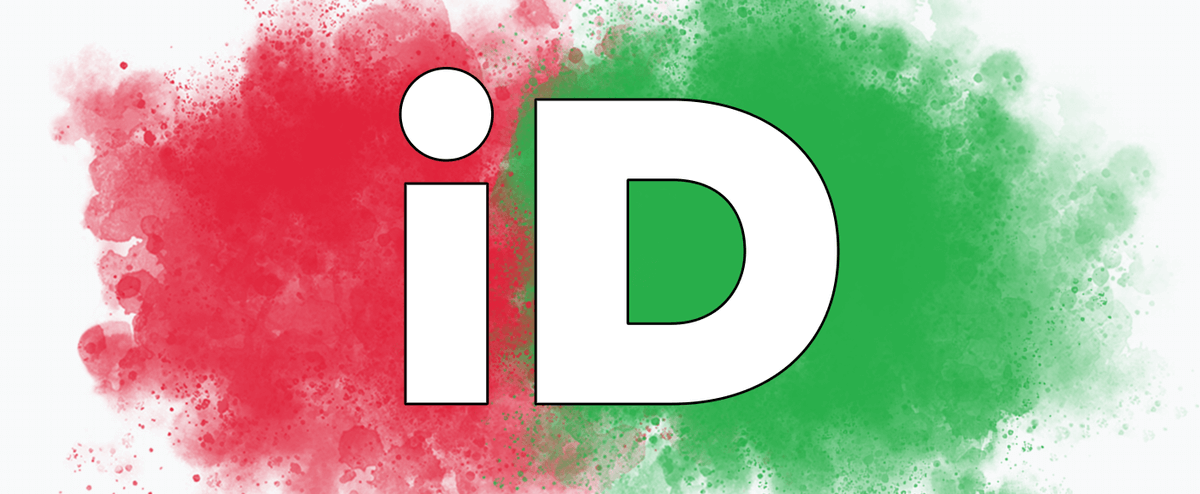
iD style
People with the DiSC iD style personality are often persuasive, charismatic, and high-energy. People with iD styles value action and enthusiasm, and tend to move at a fast pace.
What do the ‘i’ and the ‘D’ in DiSC mean?
The i in the Everything DiSC® model stands for influence. The D stands for dominance. People whose DiSC profile shows an iD style display both the influence of the i style and the dominance of the D style. They are bold and passionate, bringing energy and optimism to their work. They are action-oriented and are comfortable making decisions on the fly.
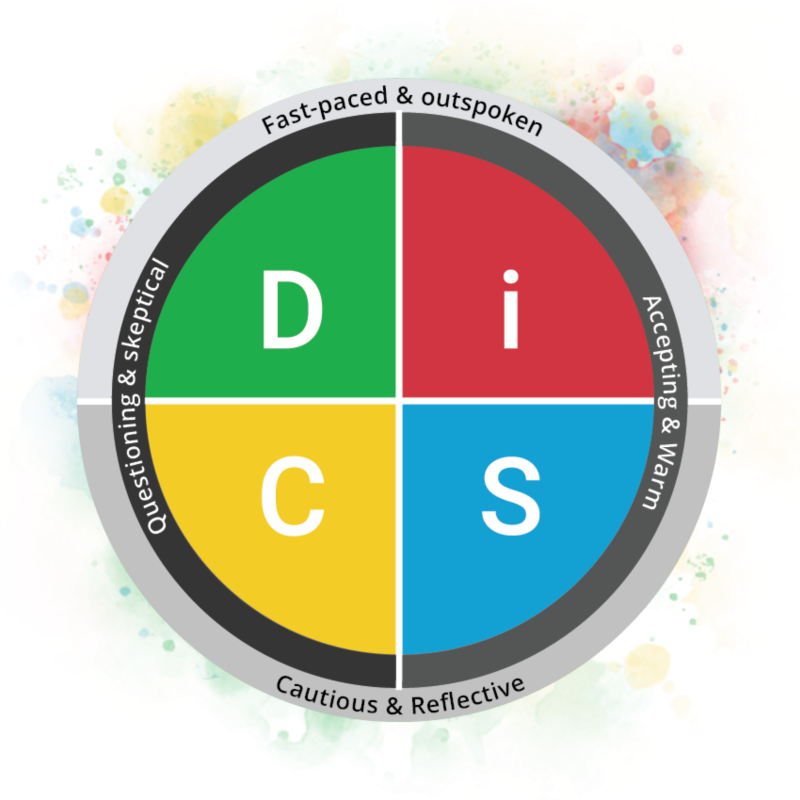
What is a DiSC style blend?
Everyone is a mixture of all DiSC styles, but most people tend toward one or two. While some individuals' DiSC assessment results will show a style with just one letter (D, i, S, or C), others will show a 2-letter style (iD, SC, CD, etc.).
These 2-letter styles are style blends, and they indicate that an individual's personality type falls between two of the four main quadrants.
DiSC assessment takers can see this clearly in their results by looking at where their dot is placed on the DiSC map. If your dot is close to the border with another style, you probably show traits associated with that style, as well. Thus, i styles often share characteristics with the D and S styles.
The Everything DiSC test is calibrated to help you discover which main DiSC style quadrant you fall into, and if your results show a blend, which style blend best fits you.

Dot placement
There's a lot of variety within each of the four main DiSC styles. People with iD styles share many high-level traits, but each iD-style person manifests the style differently. The dot placement on your Everything DiSC profile will help you discover your unique place on the DiSC map.
For example, you might be strongly inclined to the iD style with your dot appearing on the far edge of the circle and near the border between the i and D lines. Or you might be slightly inclined toward the i style with your dot appearing closer to the middle and centered in the i quadrant.
Learn more: DiSC dot and priorities explained
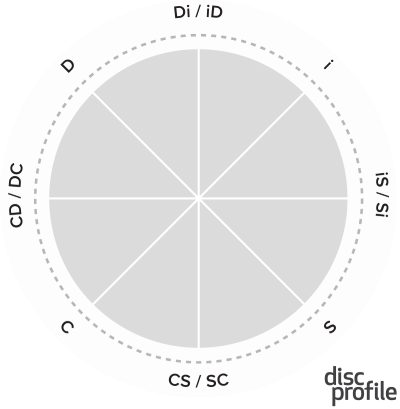
How do you get typed as an iD style in DiSC?
The DiSC model, at its foundation, is two-dimensional, measuring:
- pace (from fast-paced and outspoken to cautious and reflective)
- agreeableness (from questioning and skeptical to accepting and warm)
These two scales form the four primary DiSC quadrants.
However, these are just a starting place for the Everything DiSC assessment. This assessment will tell you not only your main DiSC style (D, i, S, or C) but also which of the 12 style blends best represents you and how strongly you align with those traits.
A more detailed look at the DiSC map reveals both the four main quadrants and eight scales.
Everything DiSC assessments measure respondents on these eight scales: D (Dominance), Di/iD, i (influence), iS/Si, S (Steadiness), SC/CS, C (Conscientiousness), and CD/DC.
People with the iD style score highest on the Di/iD scale. Further, their responses show tendencies slightly more in line with the i style than the D style. People with i styles are outgoing and enthusiastic. D-style folks are action-oriented and ambitious. iD styles are a blend of the two, with a bit more i than D.
This is another way that Everything DiSC accounts for how varied our personalities can be!
Why is the i in iD lowercase?
The small i in DiSC helps you distinguish Everything DiSC® and DiSC® Classic products from other assessments based on the DISC model. Learn what makes Everything DiSC different.
iD-style managers
iD-type people are inspiring managers who enjoy finding opportunities for collaboration and innovation. They tend to recognize their team members for their achievements.
Learn more about the strengths of iD-style managers alongside some insights that can help them hone their management skills! Read about DiSC management styles.
